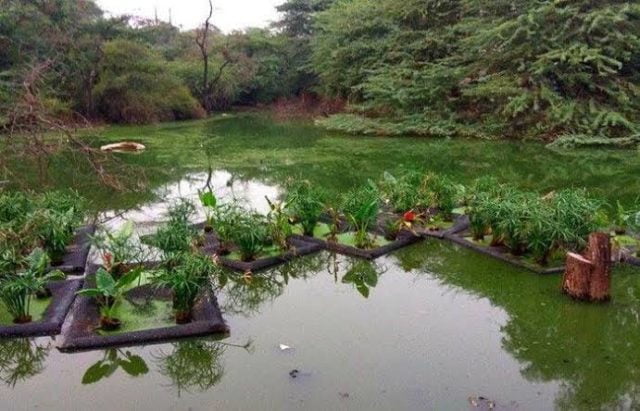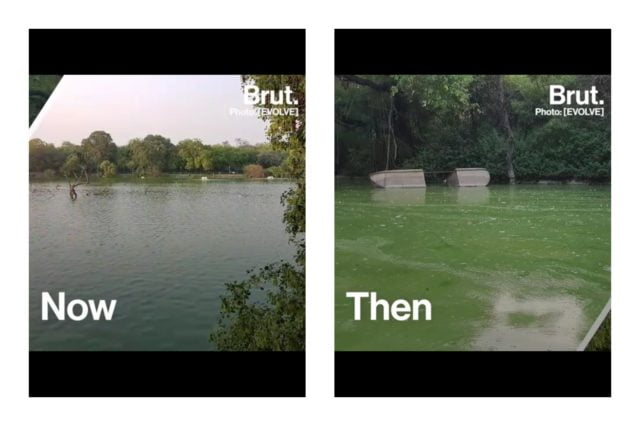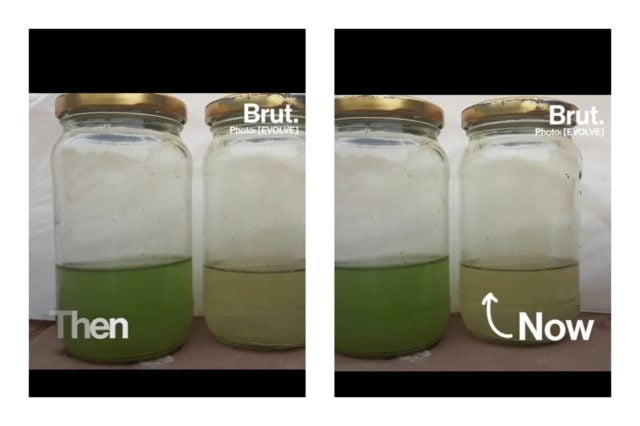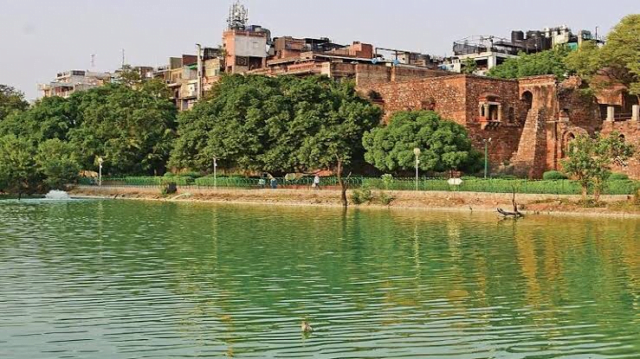Disclaimer: Originally published in August 2019. It is being republished since it still remains an interesting topic till today.
Gen Z kids – including me – who were born and bred in concrete jungles are generally dumbfounded at the idea that there existed a time when human civilization didn’t entirely depend on artificial intelligence.
Our mechanical lifestyles these days allow for us to be one with nature only when we take off to faraway hinterlands in order to rejuvenate ourselves.
Therefore, it goes without saying that rapid urbanization has left the old adage of ‘stop and smell the roses‘ essentially defunct, among many other things.
Consider this study published by Breakthrough National Centre for Climate Restoration which postulates that doomsday is closer than we think – 2050.
While relocating to Mars could be a viable option in the foreseeable future, here’s a tale of two people who made our home planet hospitable for a little longer by saving Hauz Khas lake from the clutches of premature extinction.
They turned what once used to be a sewage dump into a thriving lake ecosystem!
Hauz Khas Lake – History
The lake, which was originally dug up under the reign of Alauddin Khalji to supply water to the inhabitants of Siri, dried up in the late 1900s.
Despite several attempts to revive the lake in the late 90s and early 2000s by NGOs like INTACH, its mission remained incomplete without the active involvement of DDA (Delhi Development Authority), which was supposed to oversee certain functions to maintain the lake ecosystem.
The need for a solution was evident when the surface of the lake was enveloped in a patch of algae.
Also Read: In Pics: This Hyderabad Based Techie Turns Plastic Waste Into Fuel To Save The Environment
Lake Restoration
British environmental engineer and founder of Evolve Engineering, Tarun Sebastian Nanda and Debayani Panja, a project manager, came to the lake’s rescue by proposing a solution that is both cost-effective and natural – floating wetlands.
“The idea behind the floating wetland is that the plants on the islands will absorb the nutrients present in the waterbody, thereby cleaning the lake in a natural way,” stated Nanda in an interview.
These 2×2 sqm islands cost about ₹5000 each and float on plastic bottles which are discarded.

These wetlands function as a bio-filter and remove environmental pollutants using biological processes.
The engineers also harnessed solar energy and built a floating aerator which increases the amount of oxygen in the lake.
Interestingly, people have also begun to adopt these floating wetlands. Those who adopt them learn how to make these islands from scratch and as a result help the team as well as the environment.
Presently, the restoration process is underway and anything between 500-1000 wetlands are projected to be introduced to the lake.
Their project has been crowd-funded so far but it has recently received corporate sponsorship which will speed up the process of its revival.
Hauz Khas lake also serves as a temporary abode for several species of migratory birds. Since its revival, many of them have been sighted in the lake.
A Concerted Effort
What originally started out as a two-person venture soon turned into a communal effort toward environmental conservation and restoration.
Hopefully, this will kickstart a restoration movement wherein other lakes which have met a similar fate are resurrected through these techniques.
Kudos to them for not buying into the idea that two is too less to make a difference!
Image Credits: Google Images
Sources: Breakthrough-NCCR, DNA India, The Hindu
Find the blogger: @microrgasm
Disclaimer: We do not hold any right, copyright over any of the images used, these have been taken from Google. In case of credits or removal, the owner may kindly mail us.
Other Recommendations:
The Self-Made Billionaire Of The Jenner-ation, Kylie, Makes A Debut On Fake Friendly Fridays



































